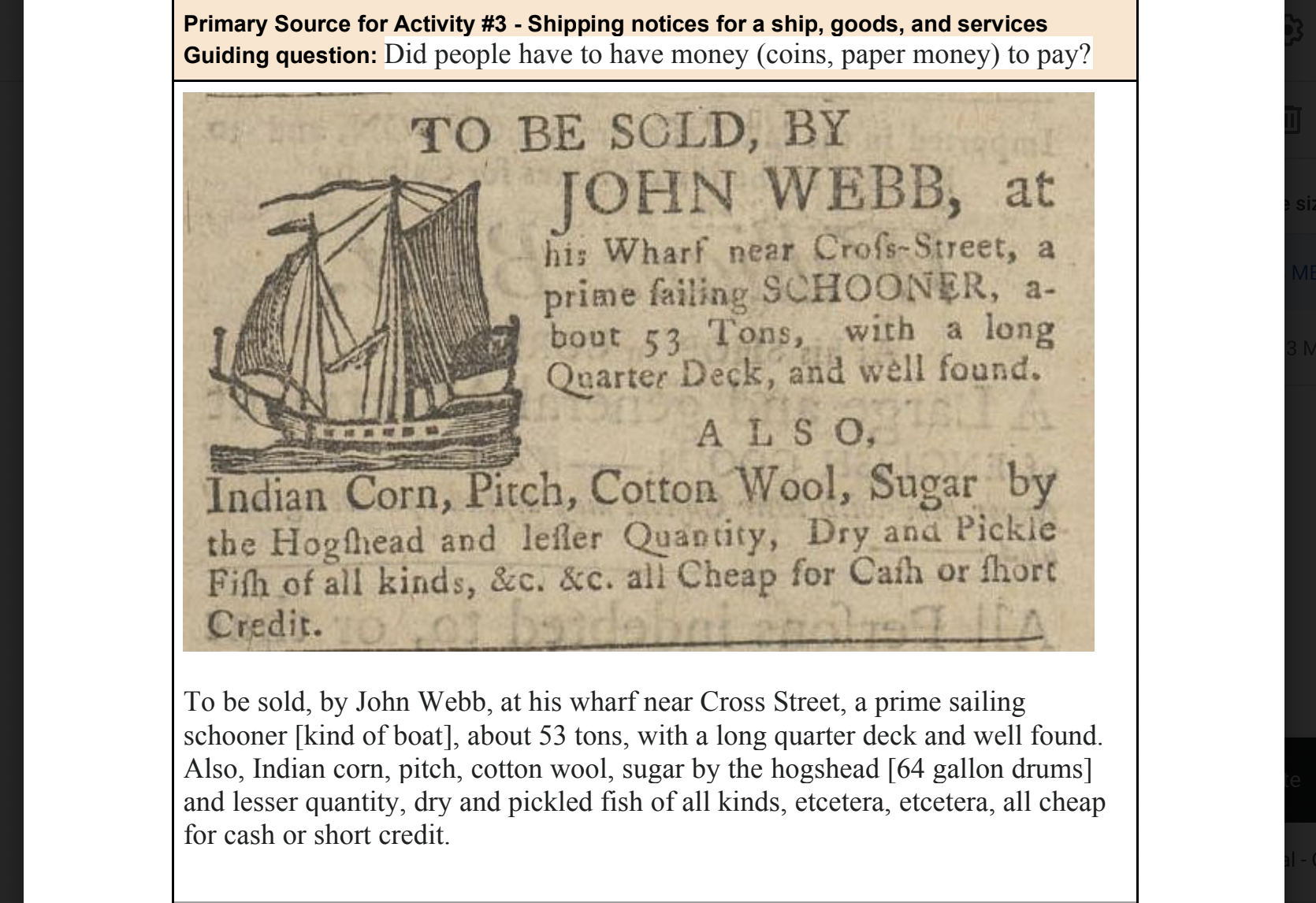
Explore primary sources to learn about daily life in Colonial Massachusetts.
Students will practice with posing questions about primary source documents and then analyzing the resources to learn more about life in Colonial Massachusetts. Students will summarize their learning in the final lesson.
What was everyday life like for people who lived near the ocean in Massachusetts 250 years ago?
What can a newspaper tell us about the lives of men, women, and children in 1767 Massachusetts?
Focus skills include:
-
Searching in documents for clues that suggest a bigger pattern (to gain an understanding of the lives of people from the time of the document)
-
Observation skills - close observation and description
-
Using observations as evidence to support or contradict a guess (hypothesis), or second-
hand information (secondary sources).
Focus Academic Language (students will be exposed to, and offered practice with a mix of the following):
- Discourse to inform [WIDA key language use]: define, describe, compare, contrast, organize, categorize, or classify.
- Language function: SPECIFY:
- Language feature: Prepositional phrases to identify time & place
- Exchanging descriptive observations with a partner
- Listening to and building on partner information
- Vocabulary: illustrations, columns (vocabulary used in the genre of newspapers and other informational writing)
- Language feature: Prepositional phrases to identify time & place
- Language function: SPECIFY:
Language-aware lessons are intended to support all students, especially Multilingual Learners who are still developing in English, access primary-source rich learning
The English Learner Collaborations project of the Massachusetts Council for the Social Studies commissioned the development of lessons to illustrate applying English Language Development (ELD) teacher resources to History and Social Studies content.
The PDF version of this lesson is annotated with connections to the terms and principles from the WIDA 2020 ELD framework, and with suggestions for additional supports and preparation depending on the needs of the students in the classroom, this lesson provides a plan to meet not only history content objectives but language objectives.
PDF: Language-aware lesson example: Colonial Daily Life (3rd Grade)
The editable version (free to copy and adapt) is made accessible here to encourage teacher use and feedback (email projects@masscouncil.org).
Language-aware lesson example: Colonial Daily Life (3rd Grade)
The stragegies used in this unit and samples of student work can be found in the following chapter.
Noyes, A., & Audet, A. (2024). Strengthen Language Proficiency Through Primary Source Inquiry: Supporting Multilingual Learners. In [forthcoming] Waring, S. (Ed.), Teaching With Primary Sources for Cultural Understanding, Civic Mindedness, and Democracy, pp. 64-86. Teachers College Press.
Suggested citation for language-aware lessons linked here and in on the parent page where this page is linked: Audet, A. and Noyes, A. (2022). Primary source lessons demonstrating practical applications of WIDA 2020 principles and resources for elementary, middle school, and high school social studies teaching. Extending the reach of primary sources: English Learner Collaborations project of the Massachusetts Council for the Social Studies. http://www.emergingamerica.org/english-learner-collaborations


